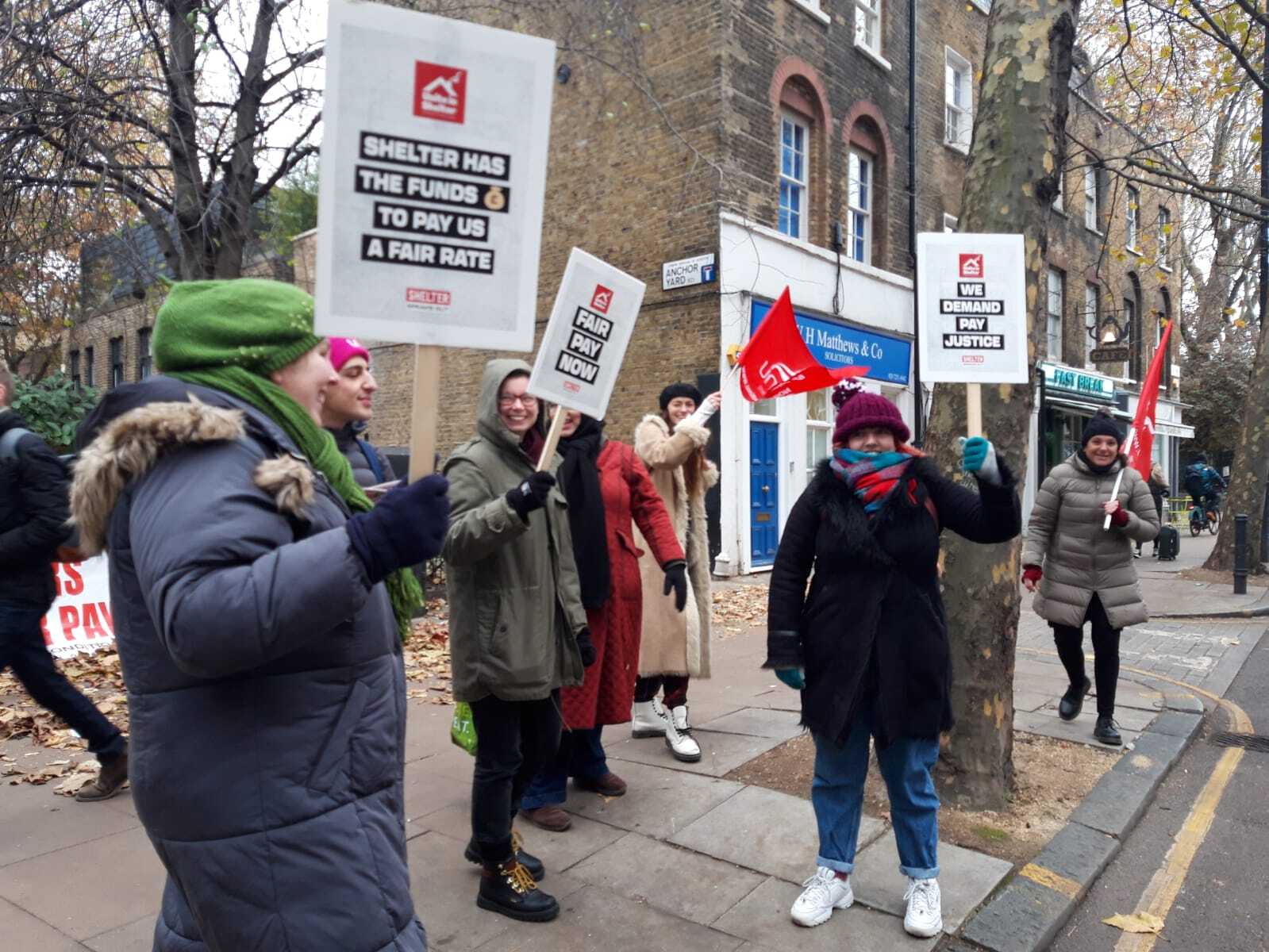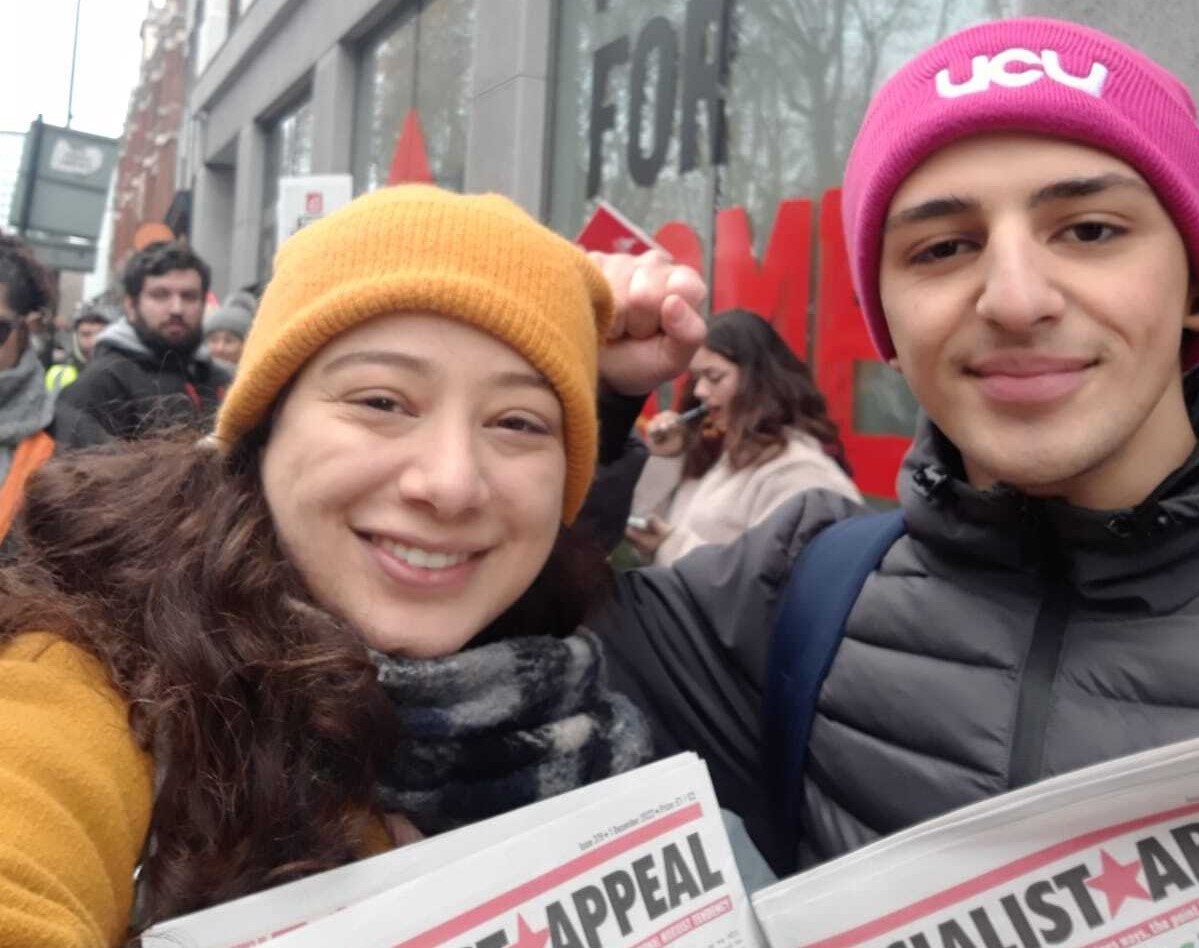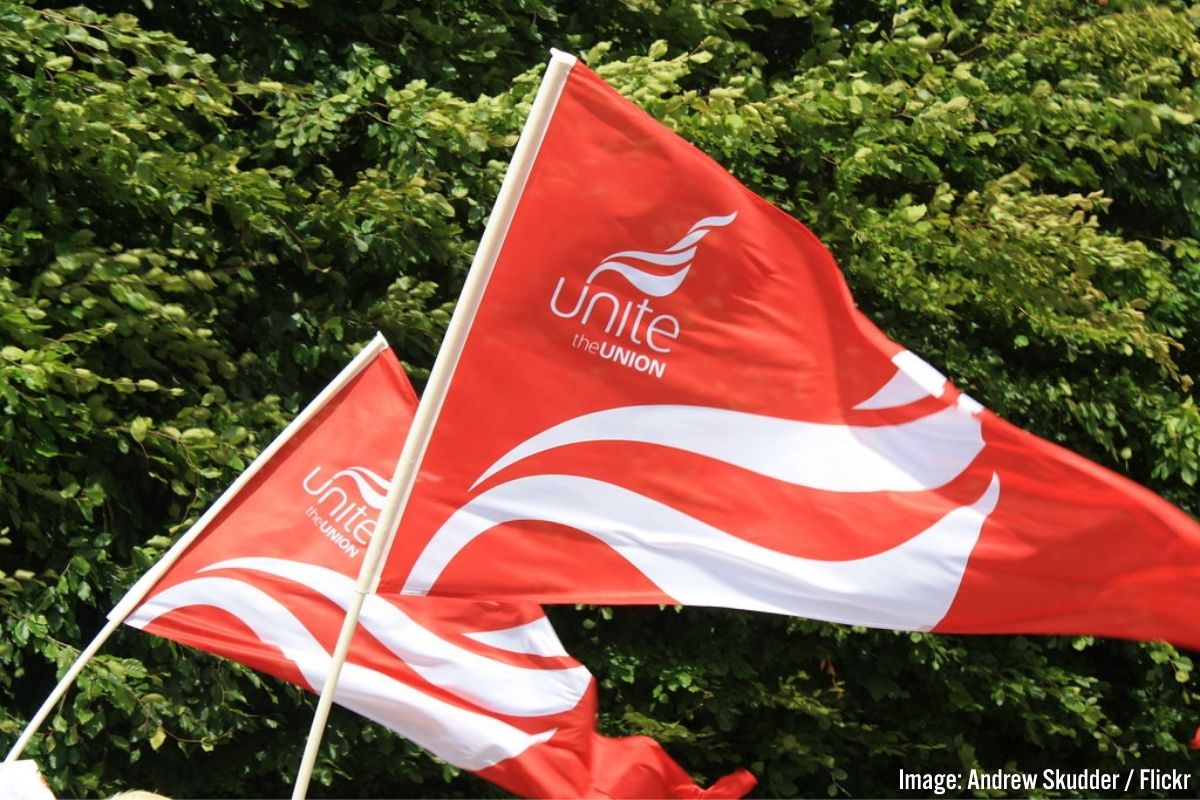Workers at the housing charity Shelter are out on strike, fighting against a real-terms pay cut. A Unite rep explained to Socialist Appeal the causes behind the strike and the mood amongst workers on the picket. Solidarity to their struggle!
In a bitter irony, charity workers are the latest section of the working class to feel the bite of the cost-of-living crisis. Many of these workers, whose job it is to help others who are struggling, are now faced with choosing between heating and eating themselves.
The workers of Shelter – a housing and homelessness charity – have therefore decided that enough is enough. They have been carrying out strike action since 5 December, after the management imposed a measly 3% pay increase. In real terms, this ‘increase’ is in fact a pay cut of 11%, with the RPI inflation rate now standing at 14%.
According to Shelter staff, the charity’s management has refused to enter into meaningful negotiations with representatives of Unite over this year’s pay deal. They have instead offered another insulting 4% pay increase for next year.
Socialist Appeal went to the picket lines to stand in solidarity with Shelter workers. On 9 December, we spoke to a Unite rep who was kind enough to answer a few questions for us on this dispute.
Bad faith
 From the start, it was clear that workers had been pushed into this action due to the behaviour of management. As the rep explained: “The three percent increase that we have been offered by management effectively means an 11 percent pay cut.”
From the start, it was clear that workers had been pushed into this action due to the behaviour of management. As the rep explained: “The three percent increase that we have been offered by management effectively means an 11 percent pay cut.”
“Management have refused to go into negotiations with us, they haven’t responded to our strike, and we are still unclear why this is. Many of our colleagues are very worried about paying bills. They are having to cut down on energy usage, they are struggling to pay rent, and to even afford food.”
Shelter, like many employers, are clearly digging their heels in. Their managers clearly fear that if they were seen to give in, this would only encourage the workers to go further and tackle other injustices in the workplace.
In the meantime, the offer on the table has remained paltry, as the rep went on to point out: “On Thursday last week, management said that they would give us a four percent wage increase next year, but this is obviously not sufficient. Negotiations haven’t been back on the table since then.”
Mobilised for action
Unfortunately for the managers, the workers at Shelter were not prepared to take this insult lying down. Once it became clear what the bosses’ game was, the Unite branch there mobilised quickly.
“It kind of developed naturally. Everybody is affected by inflation, and the pay rise offered was simply not enough. However, we know that the money is there, it’s there to improve our salaries, but management is rejecting this.”
Thanks to a tight-knit workforce, the rep said it was relatively simple to win support for strike action. “Everyone who is out here are all friends as well, so it was easy to get everyone’s support in solidarity with each other.”
Unite, the Shelter workers’ union, has also mobilised its resources behind the strike, the rep explained. “Unite has been brilliant in their support. They understood our position and have supplied us with banners and placards for the picket…we have also received great support and solidarity from other organisations, which really helps.”
Mood on the pickets
 “Management are definitely disconnected from what the staff are going through,” the rep told us, when asked about the employers’ approach to the struggles. “There are single mothers struggling with childcare and heating up their homes. But there has been no effort in trying to understand what we are going through.”
“Management are definitely disconnected from what the staff are going through,” the rep told us, when asked about the employers’ approach to the struggles. “There are single mothers struggling with childcare and heating up their homes. But there has been no effort in trying to understand what we are going through.”
Shelter bosses are not alone in this attitude. Over the last few weeks, striking posties have had to endure a barrage of anti-strike tirades and propaganda from Royal Mail CEO Simon Thompson. And many of those organised with PCS – the civil service union – have complained that their low pay forces them to use the very welfare systems they work within.
This shows the real attitude of the employers, even in a ‘non-profit’ industry such as the charity sector. However, the workers are just as determined to fight for what they are worth.
The rep confirmed this, noting that: “There is definitely a very positive atmosphere on the pickets. We are already good friends, but obviously we are struggling together now for the same cause, standing together in the cold. That does bring people closer!”
Nor are the Shelter workers prepared to give up their battle.
“This is now day five and the picket has been the largest so far. I feel like it is only going to grow bigger…For many of us, this is the first time we are going on strike. It’s important that the management recognises this and the need to negotiate with us a fair deal. If that’s not offered, we will continue striking.”
Spreading militancy
Ultimately, the conditions at Shelter are not unique to that charity. Other charity workers are also seeing their pay eaten away by inflation as their bills and rent rise, as is the working class overall.
As the crisis of capitalism forces more and more workers to draw similar conclusions to those at Shelter – that the only way to defend ourselves is to down tools and enter the fight – we can confidently expect further militancy in the future.
At the end of the day, the working class can only rely on its own strength. We are the ones who produce all the value in society, and without our kind permission not a single wheel would turn. On this basis, a socialist future – where workers’ own and plan the economy in their collective interest – is not just possible, but is within our reach.
What is needed is for workers to organise, mobilise, and fight for a socialist programme.
Offering some final words of solidarity to others in the charity sector, the rep drew hopeful conclusions. “It is great that we are the first charity to go on strike, and we hope that other charities will follow as well. It shows that it can be done, and we will fight until we win.”






